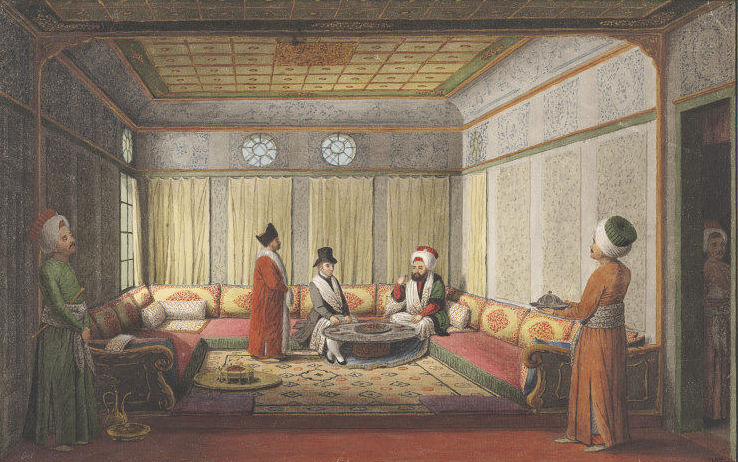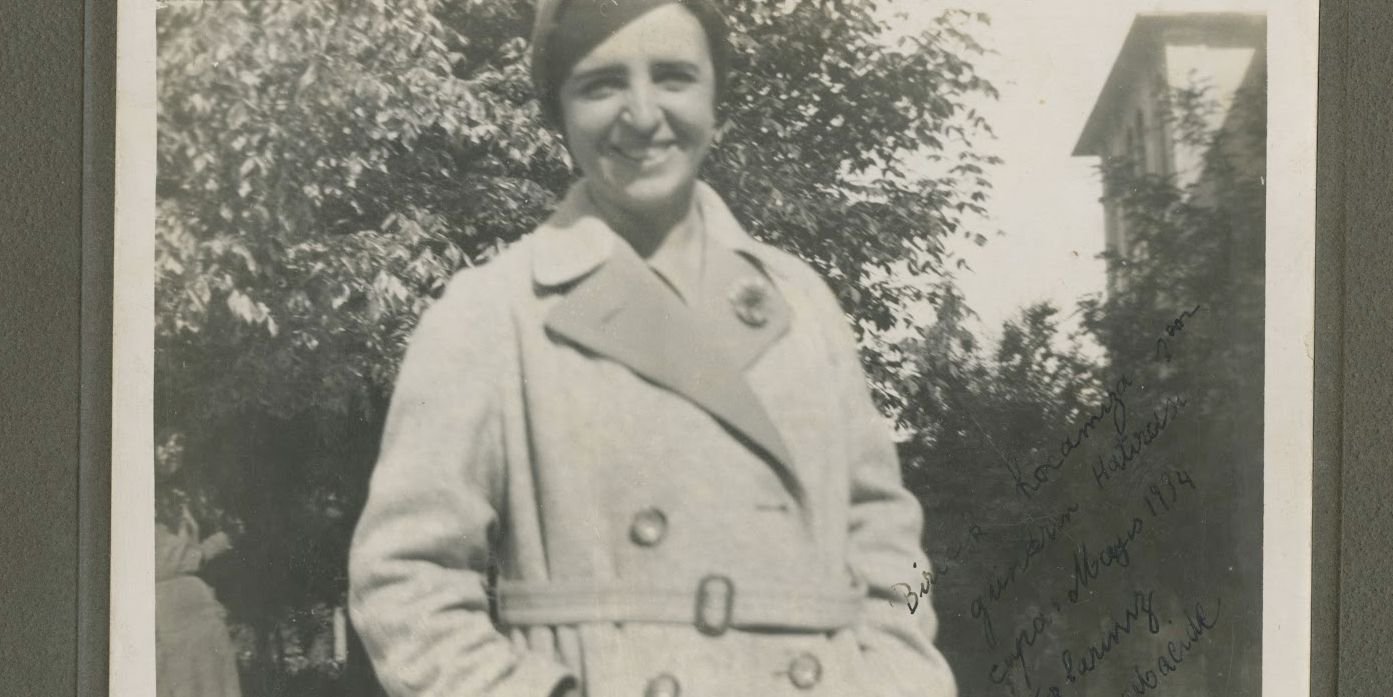British-Ottoman Diplomacy and the Making of Maritime Law
with Michael Talbot & Güneş Işıksel
hosted by Arianne Urus and Sam Dolbee
Download the episode
This podcast explores murky boundaries in two senses. The first has to do with Anglo-Ottoman commerce and diplomacy in the early modern period. Like the more well-known case of the the British East India Company in South Asia, British diplomatic representation in Constantinople was also controlled by a corporate entity. Known as the Levant Company, the institution ensured that from the late 16th to the early 19th century there was little distinction between merchants and statesmen when it came to British diplomacy in the Ottoman Empire. The blurred lines gave way to what might be called a “cycle of necessity,” in which British diplomats gave gifts to secure commercial privileges for British merchants who would then fund the diplomats to provide gifts again. Yet the cycle did not always proceed smoothly, and discrepancies between translations of agreements often played a key role in hitches, in the process raising basic yet profound questions about what treaty-making meant. The second part of the podcast considers Ottoman maritime space and legal order more broadly. With respect to this theme, murkiness makes another appearance, this time as it related to the ability to possess or control the sea. What did it mean to draw a line across the waves, to differentiate between su and derya? Particularly in an age of imprecise mapmaking technologies, these efforts at delineation often were accompanied by a good deal of ambiguity, pointing to the complexity - if not always plurality - of legal cultures and claims to sovereignty that existed in the Ottoman maritime space and, indeed, that extended even ashore the well-protected domains as well.
Stream via Soundcloud
Stream via Soundcloud
 |
Dr. Michael Talbot completed his PhD at the School of African and Oriental Studies in London. He is currently a post-doctoral researcher with the Mediterranean Reconfigurations project at Université Paris I Panthéon-Sorbonne. (see academia.edu) |
 | Sam Dolbee is a PhD candidate at New York University writing his dissertation on the environmental history of the Jazira in the late 19th and early 20th century. (see academia.edu) |
 | Arianne Urus is a PhD candidate at New York University writing her dissertation on the environmental history of international law in the early modern North Atlantic. (see academia.edu) |
 | Dr. Güneş Işıksel completed his PhD at École des hautes études en science sociales with a dissertation on 16th century Ottoman diplomatic history. He is currently a post-doctoral researcher with the Mediterranean Reconfigurations project at Université Paris I Panthéon-Sorbonne. (see academia.edu) |
Episode No. 197
Release Date: 22 August 2015
Location: Paris, France
Editing and production by Chris Gratien
Bibliography courtesy of Michael Talbot
Image via V&A
SELECT BIBLIOGRAPHY
Brummett, Palmira, Ottoman Seapower and Levantine Diplomacy in the Age of Discovery (New York, 1994).
Eldem, Edhem, 'Strangers in their own seas? The Ottomans in the Eastern Mediterranean basin in the second half of the eighteenth century', Studi Settencenteschi 29-30 (2010), 25-58.
Fusaro, Maria, 'After Braudel: A reassessment of Mediterranean history between the Northern Invasion and the Caravane Maritime' in M. Fusaro, C. Heywood & M-S. Omri (eds.), Trade and Cultural Exchange in the Early Modern Mediterranean: Braudel's Maritime Legacy (London & New York, 2010), 1-22.
Greene, Molly, Catholic Pirates and Greek Merchants: A Maritime History of the Mediterranean (Princeton, 2010).
Heywood, Colin, 'A frontier without archaeology? The Ottoman maritime frontier in the western Mediterranean, 1660-1760' in A. Peacock (ed.), The Frontiers of the Ottoman World (London, 2009), 493-508.
Heywood, Colin, 'Ottoman territoriality versus maritime usage: The Ottoman islands and English privateering in the wars with France, 1689-1714' in N.
Husain, Faisal, 'In the Bellies of the Marshes: Water and Power in the Countryside of Ottoman Baghdad,' Environmental History 19.4 (Oct. 2014): 638-664.
Vatin & G. Veinstein, Insularités ottomanes (Paris, 2004), 145-173.
Kütükoğlu, Mübahat, 'XVIII yüzyılda İngiliz ve Fransız korsanlık hareketlerin Akdeniz ticareti üzerinde etkileri', Belgelerde Türk Tarihi Dergisi 12 (1968), 57-71.
Panzac, Daniel, La caravane maritime: Marins européens et marchands ottomans en Méditerranée, 1680-1830 (Paris, 2004).
Talbot, Michael, 'Ottoman seas and British privateers: Defining maritime territoriality in the eighteenth-century Levant' in P. Firges, T. Graf, C. Roth & G. Tulasoğlu (eds.), Well-Connected Domains: Towards an Entangled Ottoman History (Leiden, 2014).
Wood, Alfred, A History of the Levant Company (Oxford, 1935).











Comments
Post a Comment
Due to an overwhelming amount of spam, we no longer read comments submitted to the blog.